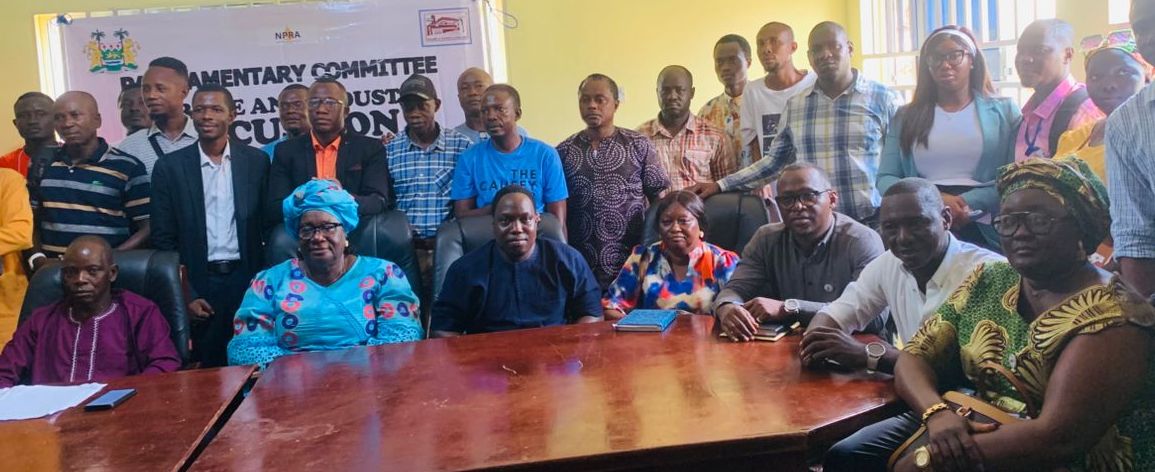The Parliamentary Oversight Committee on Trade and Industry has concluded regional discussions on the new National Petroleum Regulatory Authority (NPRA) Act with petroleum operators, Standard Bureau, journalists, Civil Society Organizations (CSOs), the Sierra Leone Police (SLP) and the Office of National Security (ONS) at the Bombali District Council in Makeni, northern Sierra Leone.
The popularization aims to educate the general public, especially those within the Value Chain Supply, about the Authority’s new mandates coupled with enormous powers enshrined in the new Act.
The Chairperson for the Parliamentary Oversight on Trade and Industry Committee, Honourable Veronica Kadie Sesay, noted that for her Committee they had had a consensus to popularize whatever bill that passed through their Committee. She stated that they must be given adequate public education to their targeted audience on the basis that they were representing every Sierra Leonean and as such they were obliged to take parliament to the doorsteps of their constituents.
“Our primary objective in parliament is to make reasonable laws on behalf of our constituents, PRA then had achieved a lot in terms of reforms, revenue growth and stability within the industry for years and the current leadership and management have made significant improvements which continue to position the Oil Industry as one of the most delivered sectors in the country”, Hon. Veronica Sesay averred, adding that, “these and other compelling factors urged the current leadership and his team to transition from Agency to Authority which would give them full authority in overseeing the downstream industry in a very transparent and effective manner”.
On his part, Honourable Daniel Koroma lauded the astute leadership at NPRA, noting that it was a very daunting task for the current Director General and his team to ensure they attained an unprecedented limelight from Agency to Authority. He challenged NPRA to continue their exceptional service delivery to Sierra Leoneans but cautioned dealers and other stakeholders to kindly adhere to the new Act which would be a win-win situation to the regulators and the dealers.
Hon. Koroma said they realized, over the years, that NPRA needed absolute autonomy which would aid them to extend their footprints in hard-to-go terrains and to also ensure complete sanity within the industry. He noted that this warranted the Legislative Committee and Trade Committee to help them actualize the dreams of the current leadership at NPRA.
He promised that, “We would continue to provide the requisite supports that would graciously help the amazing team NPRA thrive on smoothly”.
Speaking on behalf of the management of NPRA, the Director of Licensing and Inspection, Jayah K. Muana, highlighted few essential provisions in the new Act and gave an overview of red flags for dealers to keenly heed to.
Director Jayah emphasized on the need for petroleum dealer, in the southern and northern parts of the country, to always ensure that all precautionary measures were being put in place at every station. He added that petroleum product was toxic and that it was a political commodity that had the tendency to create instability in the country if the sector was not well regulated.


